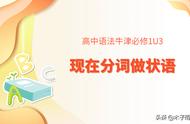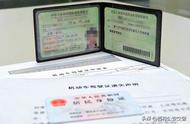✦一般现在时
表示现阶段经常或习惯发生的动作或存在的状态,或说明主语的特征
① 一般现在时句子中常有的时间状语:often,usually,sometimes,always,every (day等), once/twice,a (week等), on (Sunday等),never,in the (morning等)
They go to the Palace Museum once a year.
(他们每年去一次故宫)
They often discuss business in the evening.
(他们经常在晚上商谈生意)
② 表示客观真理、事实、人的技能或现在的状态时句子里一般不用时间状语。
The earth turns round the sun.
(地球绕着太阳转)
Light travels faster than sound.
(光传播比声音快)
③ 表示十分确定会发生(如安排好的事情)或按照时间表进行的事情,用一般现在可以表达将来,句子中可以有将来时间。
The train for Haikou leaves at 8:00 in the morning.
(开往汉口的列车上午8点开车)
④ 在时间状语从句中(以when, after, before, while, until, as soon as等引导)和条件状语从句中(以if,unless引导),用一般现在时代替一般将来时,句子可以有将来时间。
Please ring me up as soon as you arrive in Germany.
(你一到德国就给我打电话)
If it rains tomorrow,we will have to stay at home.
(如果明天下雨我们就只好呆在家)
★考点链接
The father as well as children skiing every Sunday afternoon in the winter.
A. is going B. go C. goes D. are going
答案及解析
C 首先确定时态,每个冬天周日经常性发生的动作,用一般现在时,再者,as well as表示伴随,位于动词以前面的主语(father)为准,故用单数is 。

✦一般过去时
表示过去某时发生的动作或状态,这种动作或状态可能是一次性,也可能经常发生。
① 表示过去具体时刻发生的一次性动作时,时间状语有:at (eight) (yesterday morning),(ten minutes) ago, when引导的时间状语从句。
I got up at 6:00 this morning.
(我是早上六点钟起床的)
Little Tom broke the window at half past nine this morning.
(小汤姆今天早上九点半把窗子打破了)
When he went into the room,he saw a stranger talking with his father.
(他走进房间时发现一个陌生人正和他父亲谈话)
② 表示过去一段时间内不知何时发生的一次性动作时,时间状语有:yesterday, last (year等), in (1998 等)。
He came to our city in the year 2000.
(他2000年来到我们市)
③ 表示过去一个阶段中经常发生的事情时,时间状语有:last…, in…, from…to…, for(10 years),often,usually, sometimes, always, never等。
Mr Jackson usually went to evening schools when he was young.
Every day he went to the rich man and borrowed books from him.
④ 讲故事、对过去经历的回忆、双方都明白的过去事件等一般用过去时,而且经常省略时间状语。
I happened to meet Rose in the street.
(我正好在街上遇到露西)
★考点链接
On Saturday afternoon, Mrs. Green went to the market, some bananas and visited.
A.bought B. buying C. to buy D. buy
答案及解析
A 根据句意在周六的下午,格林夫人去商场买了一些香蕉并且参观了一下。前一个动词用的went,再加上这是过去某个时间段发生的一次性动作,双重确认是一般过去时。特别注意buy的过去时是不规则变化bought。
✦一般将来时
表示将来某一时刻或经常发生的动作或状态。
①一般将来时的时间状语有:tomorrow,this (afternoon),next (year),one day,now,soon, someday,sometime, in the future, when引导的从句等。
②用will构成的将来时,表示动作与人的主观愿望无关。“shall”用于第一人称,“will”用于所有人称。如:
I will graduate from this school soon.
我很快就要从这所中学毕业了.
You will stay alone after I leave.
我走了之后你就要一个人过了.
③“am/is/are going to 动词原形”表示打算或准备要做的事情,或者主观判断即将要发生的事情,而“am/is/are to 动词原形”表示安排或计划中的动作。如:
A man told them that the woman was to give birth to the special baby.
有一个人告诉他们那个妇女就会生下那个特别的男孩
It’s going to rain soon.
天快要下雨了
④表示一个人临时决定要做某事,可以用will表达。如:
I will go to the lab to get some chemicals(化学药剂). So please wait until I return.
我要到化学实验室去取些药品,请等我回头
⑤“be to 动词原形”表示按照计划将要发生的事情。如:
An angel came to tell her that she was to have this special boy.
★考点链接
Turn on the television or open a magazine and you advertisements showing happy families.
A.will often see B. often see
C. are often seeing D. have often seen
答案及解析:
A 本题考查一般将来时,表示将来会出现的情况,本题开头为祈使句,省略了if you(turn on the television)时间状语从句,主句用一般将来时表示结果。
,











